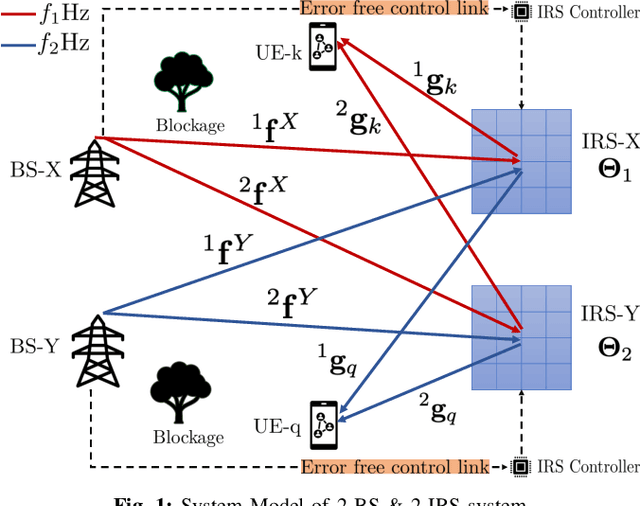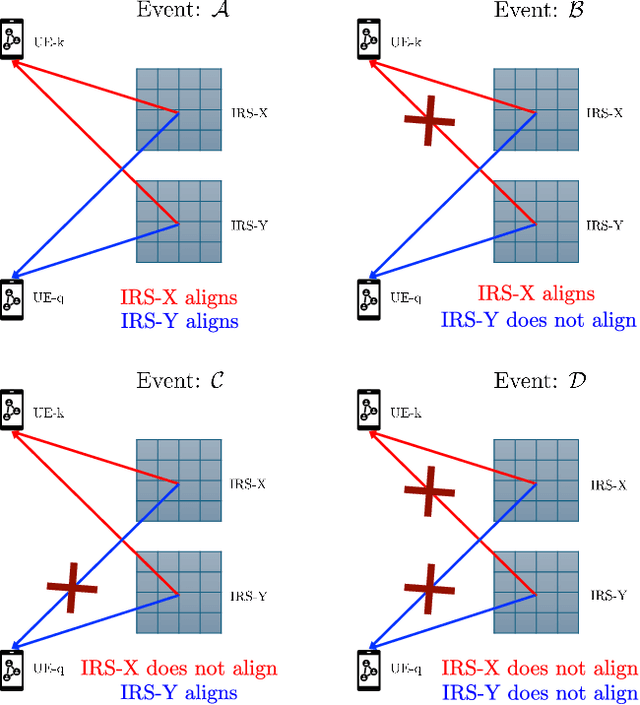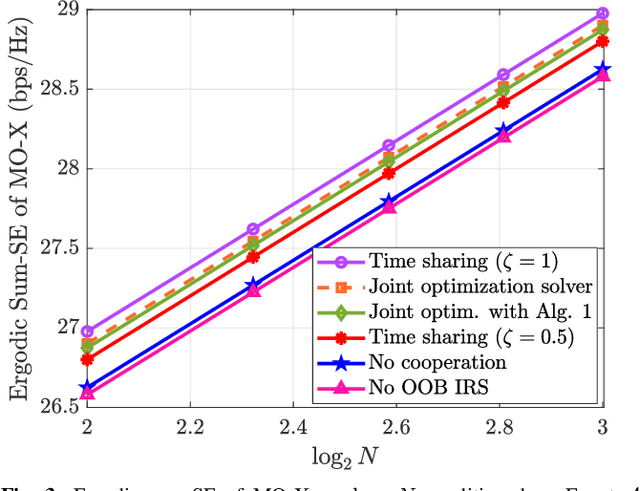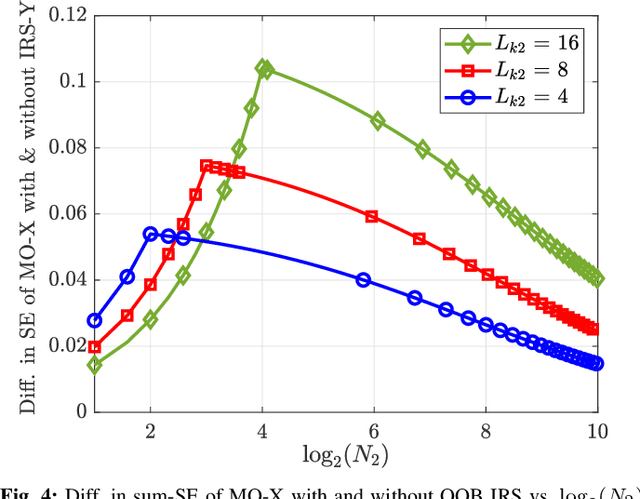Souradeep Ghosh
Performance Analysis of Multi-IRS Aided Multiple Operator Systems at mmWave Frequencies
Mar 09, 2025



Abstract:Intelligent reflecting surfaces (IRSs) are envisioned to enhance the performance of mmWave wireless systems. In practice, multiple mobile operators (MO) coexist in an area and provide simultaneous and independent services to user-equipments (UEs) on different frequency bands. Then, if each MO deploys an IRS to enhance its performance, the IRSs also alter the channels of UEs of other MOs. In this context, this paper addresses the following questions: can an MO still continue to control its IRS independently of other MOs and IRSs? Is joint optimization of IRSs deployed by different MOs and inter-MO cooperation needed? To that end, by considering the mmWave bands, we first derive the ergodic sum spectral efficiency (SE) in a $2$-MO system for the following schemes: 1) joint optimization of an overall phase angle of the IRSs with MO cooperation, 2) MO cooperation via time-sharing, and 3) no cooperation between the MOs. We find that even with no cooperation between the MOs, the performance of a given MO is not degraded by the presence of an out-of-band (OOB) MO deploying and independently controlling its own IRS. On the other hand, the SE gain obtained at a given MO using joint optimization and cooperation over the no-cooperation scheme decreases inversely with the number of elements in the IRS deployed by the other MO. We generalize our results to a multiple MO setup and show that the gain in the sum-SE over the no-cooperation case increases at least linearly with the number of OOB MOs. Finally, we numerically verify our findings and conclude that every MO can independently operate and tune its IRS; cooperation via optimizing an overall phase only brings marginal benefits in practice.
 Add to Chrome
Add to Chrome Add to Firefox
Add to Firefox Add to Edge
Add to Edge